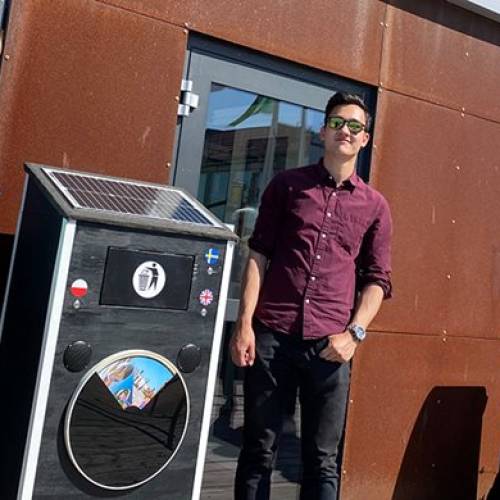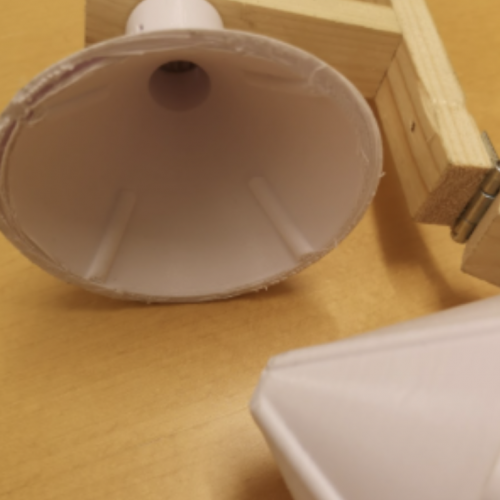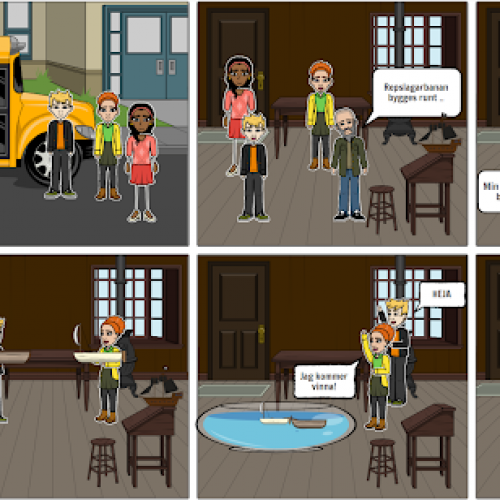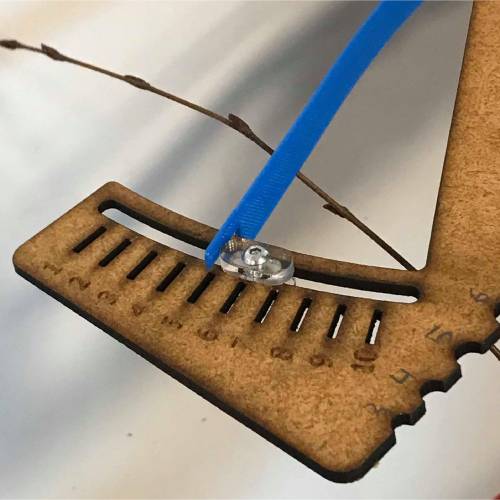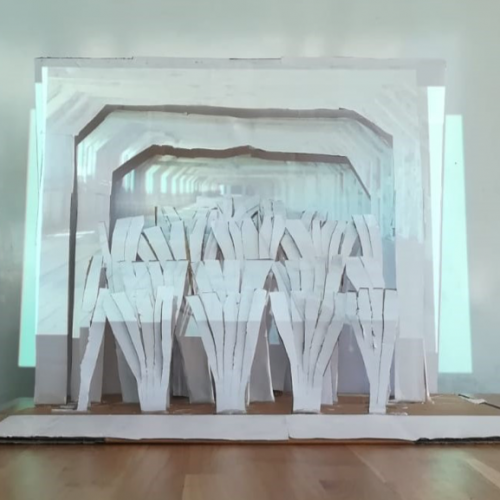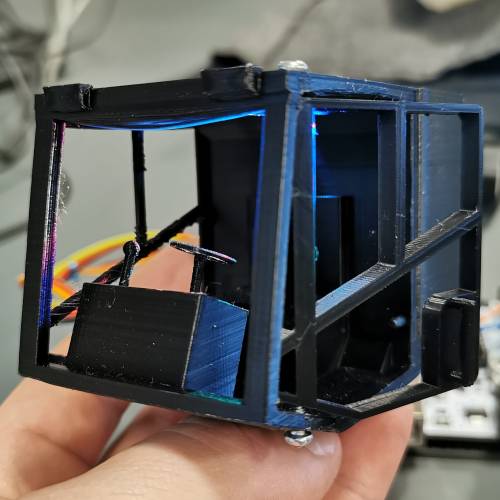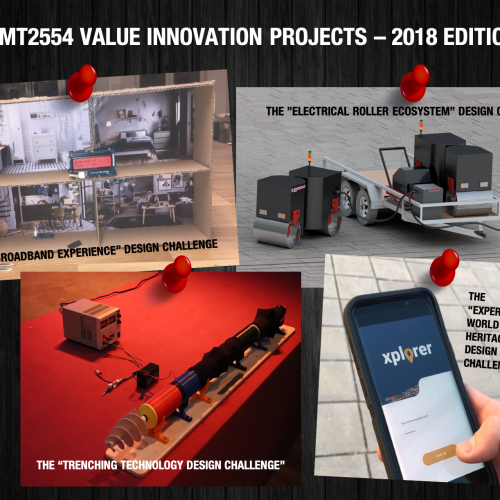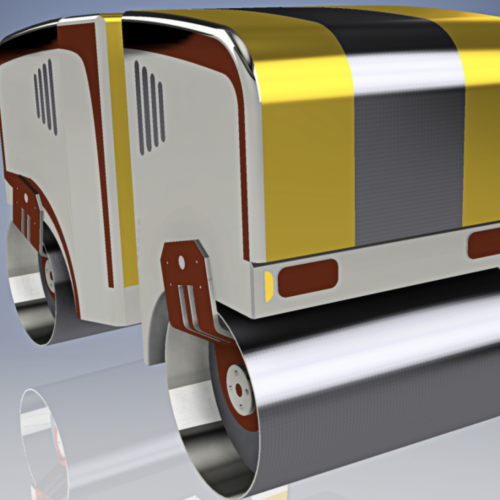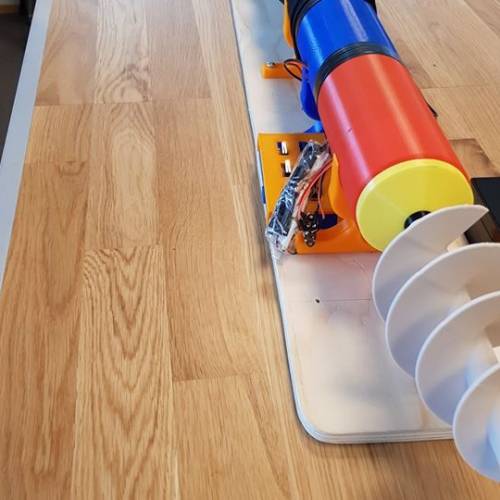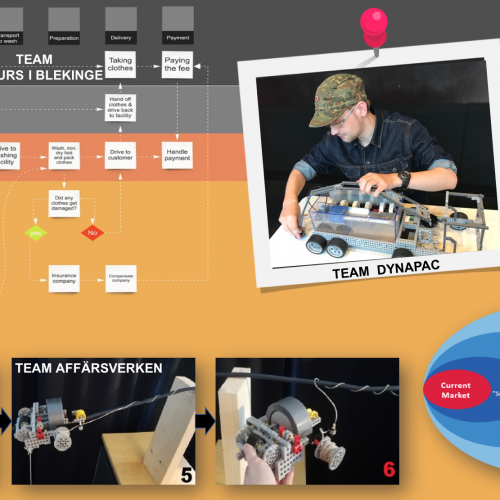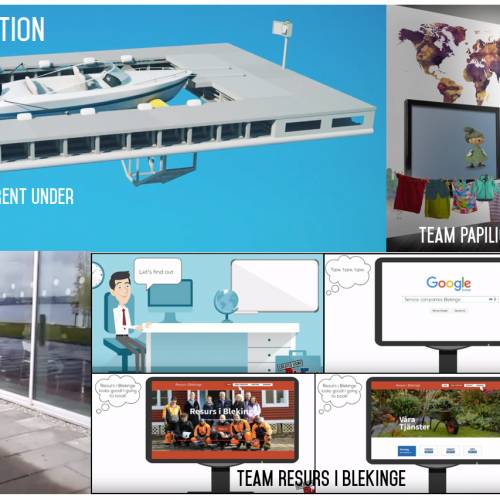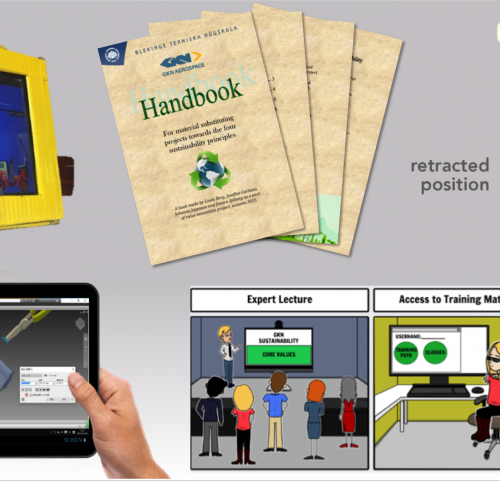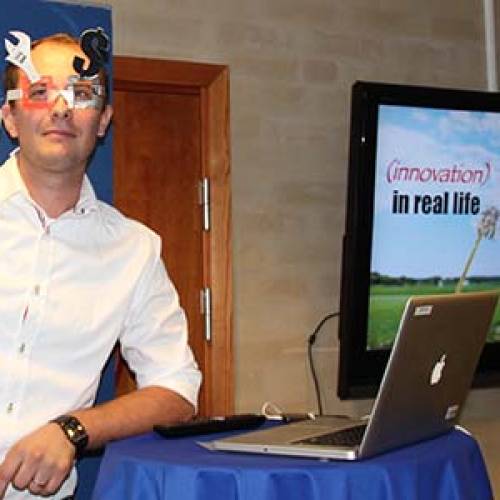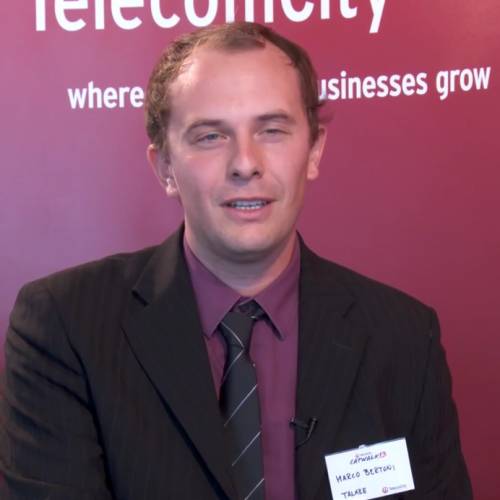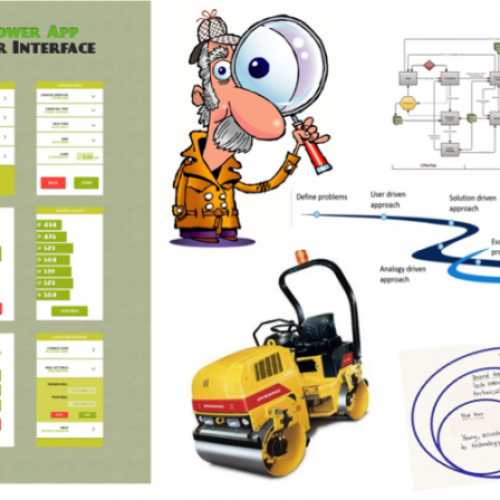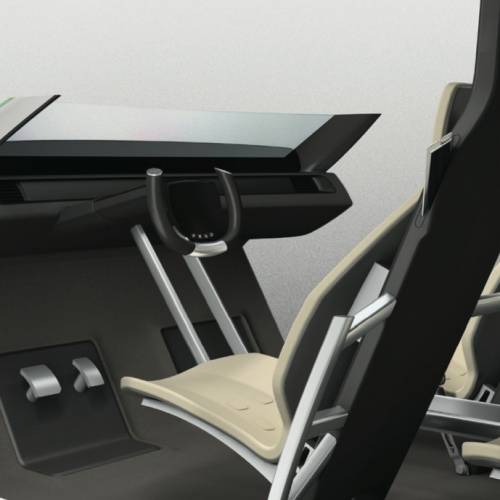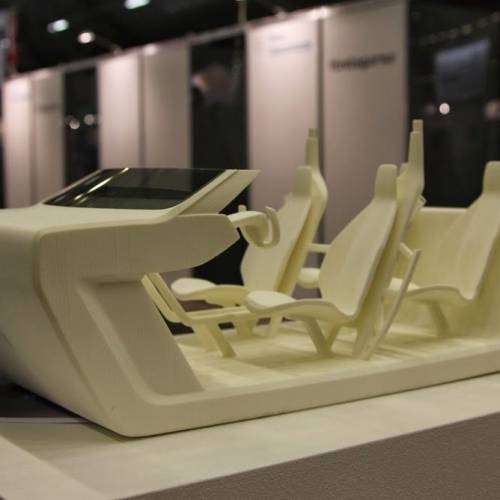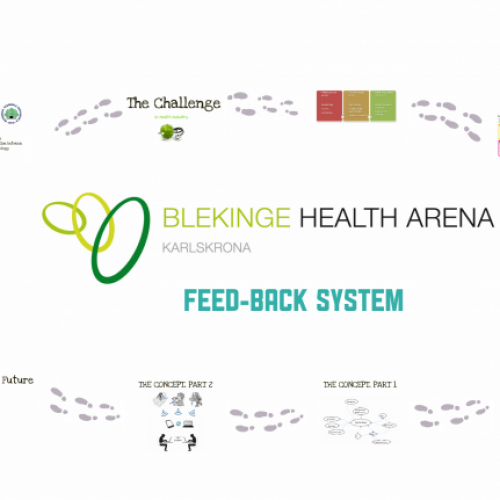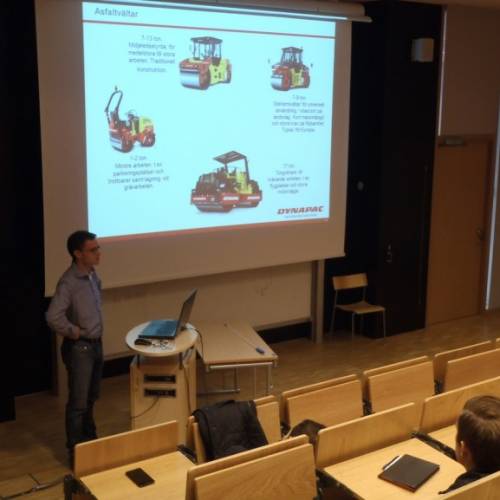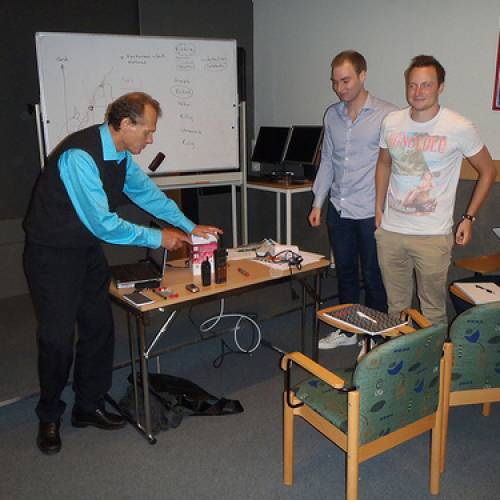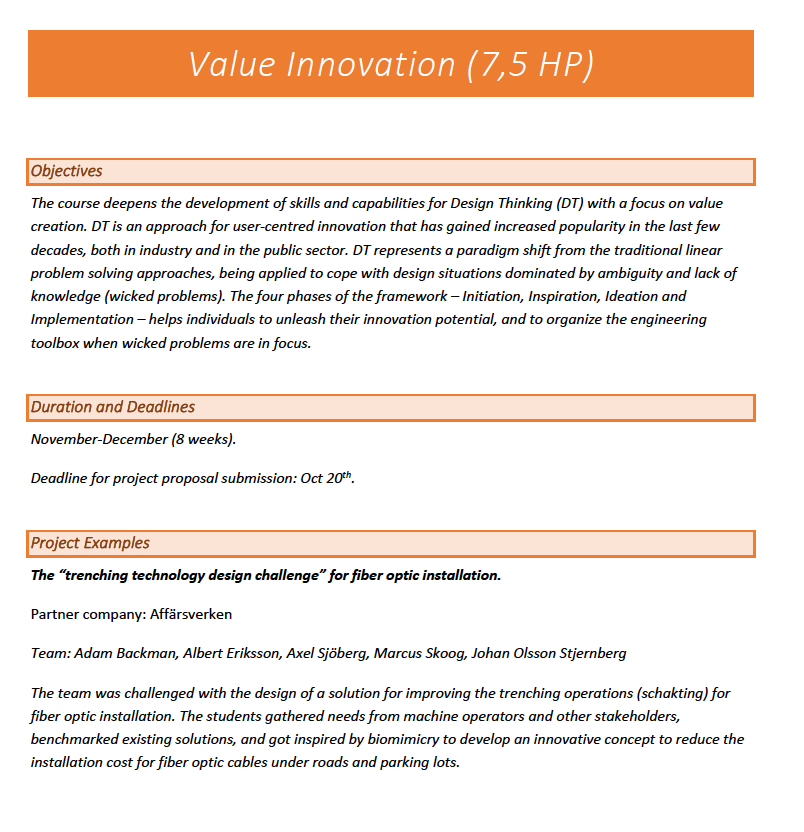Value Innovation is the very first opportunity for Master Programme students to work with the development of product and services in collaboration with selected company partners. The course introduces its participants to the Design Thinking methodology and is capped with a group project that stretches along the entire study period (8 weeks).
What distinguishes this course from more 'classical' courses in product development is its focus on value creation. You will learn about how successful companies systematically plan and work for creating solutions that customer will love. You will experience how to effectively gather user needs, how to maximise your chances to generate original, creative ideas, how to assess the value of your solutions and how to prototype and pitch them. Last but not least, you will learn how sustainability – both environmental and social – is becoming an increasingly important value-creating factors for industries and organisations.
Physical proximity with your partner company is a critical factor in the projects. This will give you the chance to exercise the Value Innovation toolbox “in real life", to solve real problems in a real setting. Here a few examples:
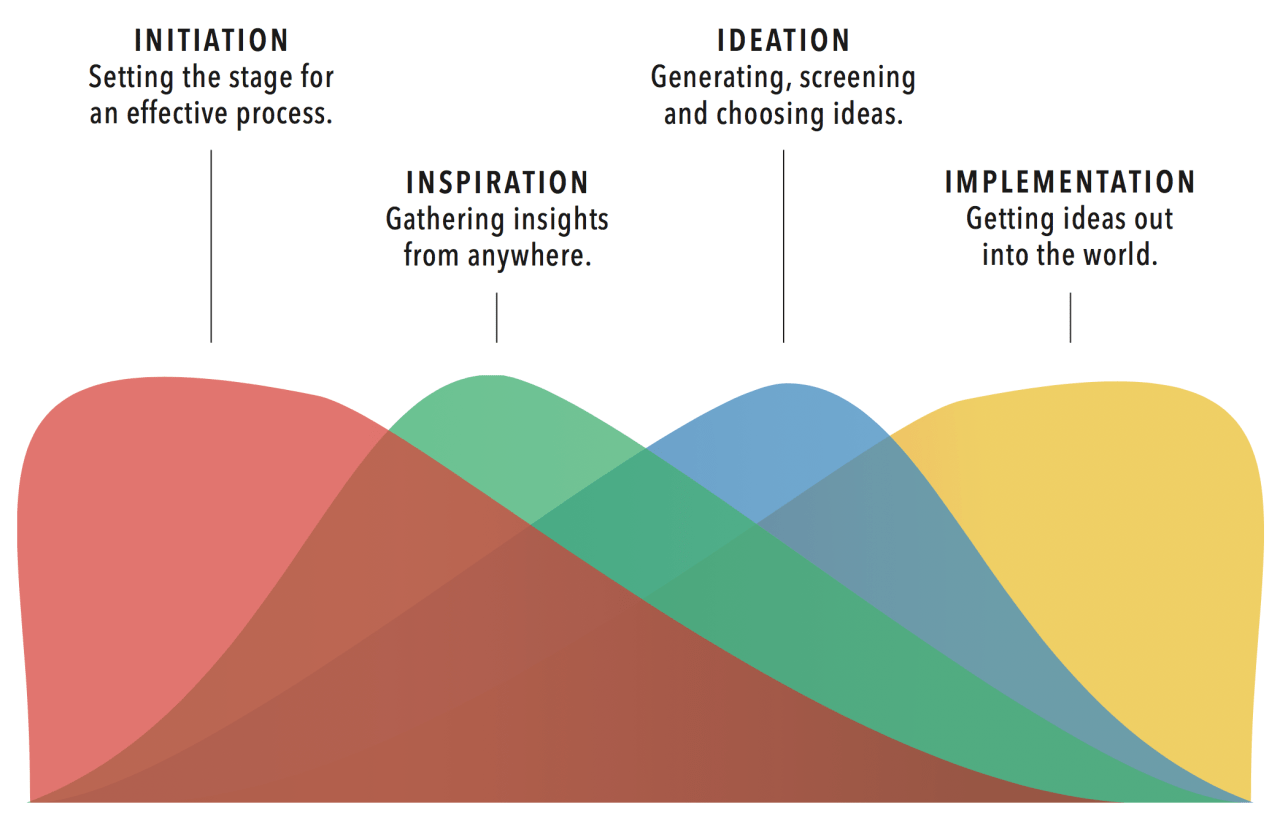
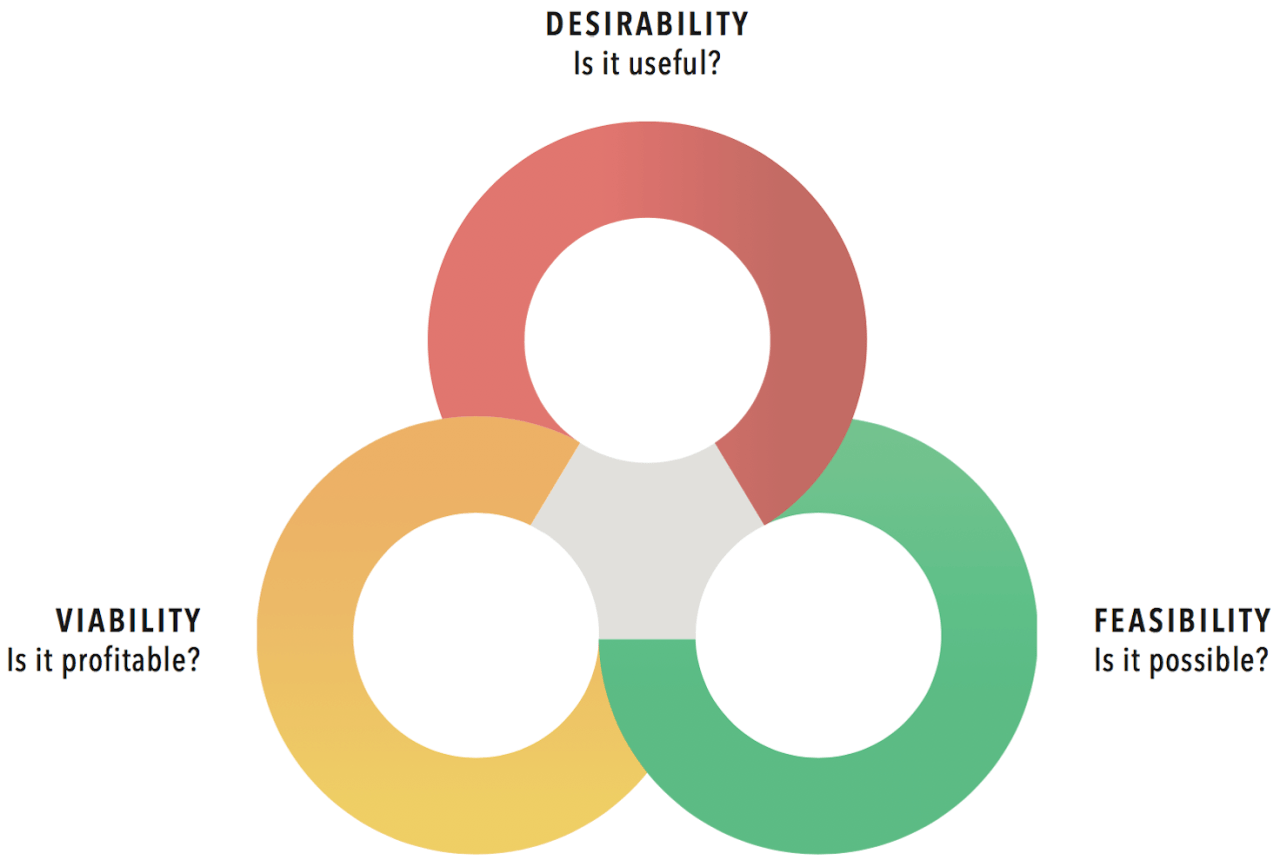

Value Innovation projects and partners 2013-2019
About MT2554 Value Innovation
The students work according to a Design Thinking process, where students approach innovation engineering with a basis in end-user needs. Much emphasis in the process is put on creative ideation and prototyping to iteratively work out the final solution in shorter loops.
Important criteria for students relates to solutions being feasible, desirable, and viable, meaning that they need to be able to develop something that can be engineered, while both being attractive and useful to users and making financial sense.

The students have the chance to apply their engineering skills to develop real solutions in a situation that features realistic schedule and cost constraints.
- They further get a unique insight into both current and future ways of working and collaborating on innovative product / service development.
- Industrial companies have access to innovative approaches and methods, performed by well-trained students (and coaches) who are not influenced by traditional patterns to problem solving.
Company participation
Course formalities
Introduction
Extended product warranties up to 10 years, leasing or pay-per-use schemes are few examples of how manufacturing companies are shifting their focus from selling products to offering ‘solutions’, by combining products and services to maximize value for their customers. This transformation challenges engineers to work systematically with value creation throughout the entire development process, from the initial need identification stage to detail design.
The purpose of the course is to give participants an understanding of value-driven methods for product/service design. The acquired theoretical base is be applied in real-life projects in collaboration with selected industrial partners.
The term ‘Value innovation’ refers to the creation of new and uncontested market space, through the development of solutions that generate a leap of value for customers and users (e.g., by means of new functionalities and/or reduced usage effort), while reducing cost and negative impact on our planet and society. The course aims at introducing students to the Design Thinking (DT) methodology framework. DT is an approach for user-centered innovation that has gained increased popularity in the last few decades, both in industry and in the public sector. DT represents a paradigm shift from the traditional linear problem solving approaches, being applied to cope with design situations dominated by ambiguity and lack of knowledge (wicked problems). The four phases of the framework – Initiation, Inspiration, Ideation and Implementation – helps individuals to unleash their innovation potential, and to organize the engineering toolbox when wicked problems are in focus.
Course participants have the chance to apply the acquired theoretical base in ‘real-life’ development projects conducted in collaboration with selected company partners, in individually and in teams. The regular interaction with stakeholders from industry and society will help students in gathering focused feedback on their learning, as well as in deepening their reflections on the topic of value innovation.
The course addresses topics such as:
- innovation models and types;
- market and customer analysis;
- need finding interviews and observations;
- benchmarking and trend analysis;
- brainstorming and systematic innovation;
- value and sustainability criteria for concept selection;
- prototyping theory and techniques;
- value and cost modelling tools for design concept selection.
Learning objectives
Knowledge and understanding
On completion of the course the student should be able to:
- be able to reflect on how the development of new solutions (products and services) are organized;
- be able to manage wicked problems in design with a user-centred approach;
- be able to justify the use of methods and tools to support each phase of the innovation process.
Skills and abilities
On completion of the course the student should be able to:
- be able to categorise and describe target groups and customer types for new products and services;
- be able to analyse customer experience with existing products;
- be able to apply needfinding methods and tools, i.e. interviews and observation, in a relevant environment;
- be able to analyse societal and technological trends and elaborate on their significance for the development of new products and/or services;
- be able to formulate and prioritize the list of needs for innovative products and/or services;
- be able to generate innovative product and/or service concepts using systematic innovation approaches;
- be able to apply methods and tools for design concept selection;
- be able to apply quantitative value modelling techniques to innovative hardware and/or services;
- be able to visualize ideas through the generation of simple prototypes;
- be able to measure the ability of the prototypes to meet the customer needs;
- be able to work effectively in a team based setting.
- be able to verbally and in writing present and discuss their findings and conclusions, in dialogue with other students.
Values and attitudes
On completion of the course the student should be able to:
- be able to discuss how chosen methods and tools relate to industrial state-of-practice and academic
- state-of-the-art;
- be able to critically assess new product development activities with respect to value (desirability,
- feasibility, viability) and sustainability dimensions (people, planet, profit);
- be able to reflect on their own – and others' – methods, insights and conclusions.
Learning and teaching
The underlying guiding principle of the course is that Design Thinking is learned best through applying it (experiential learning). Hence the course focuses on problem-based learning, with the aim at creating an understanding for how DT can support the design of new products/services, from needs to prototypes.
The course features lectures on design and innovation, which include a mix of short theory reviews (of methods, tools, and strategies for design and innovation) and active work in different group constellations. They are complemented by workshops and class exercises that give participants a first-hand experience of the most relevant tools in the Design Thinking toolbox.
The course project (Project assignment) is conducted in small teams and in collaboration with selected company partners. The course project stretches over the entire period of study and challenges students to reflect on the implementation of proposed solution concepts both from a technical and business-oriented viewpoint. Experience from the project work are shared during presentation events in the classroom, while peer evaluation and group coaching (feed forward) are used to stimulate critical reflection regarding the process and the results. The course project results are gathered in a written report, which constitutes the basis for grading. The evaluation considers results, process and presentation.
Individual self-reflections (Written assignment) aim at further stimulating students in learning about methods and tools for value innovation, through solving open-ended problems found in trigger material.
The teaching language is English.
Instructors
Instructor Responsible:
Ass. Prof. Marco Bertoni, BTH
Course schedule
A schedule for the course will be handed out during the first week (tentative schedule attached below, pending changes). Any updates to the schedule will be made on Canvas. Your attendance and participation is highly valued at all class sessions unless they are noted as optional.
Course grade
The student’s individual grade for the course is established as follows:
Project assignment (course project)
34% of course grade
The course projectsis conducted in small teams (3-5 people) and in collaboration with selected company partners. It stretches over the entire period of study and challenges students to reflect on the implementation of proposed solution concepts both from a technical and business-oriented viewpoint. Experience from the project work are shared during presentation events in the classroom, while peer evaluation and group coaching (feed forward) are used to stimulate critical reflection regarding the process and the results. The course project results are gathered in a written report, which constitutes the basis for grading (A-F).
Written assignment
66% of course grade
Individual self-reflections (Written assignment) aim at further stimulating students in learning about methods and tools for value innovation, through solving open-ended problems found in trigger material..
LADOK
The project and individual reflection report will be recorded together in LADOK as 5.0 credits for Written Assignment and 2.5 credits for Project Assignment, for a total of 7.5 credits for the course.
Reading Materials
The course is mainly referencing the following readings:
- Lindstedt, P., Burenius, J. (2006), ”The Value Model”, Nimba, ISBN 91-630-6349-2.
- Kim, W. C., & Mauborgne, R. A. (2014). Blue ocean strategy, expanded edition: How to create
uncontested market space and make the competition irrelevant. Harvard Business Review Press. ISBN 9781625274496
Other papers and readings that will be handed out during the course.
Finalized projects
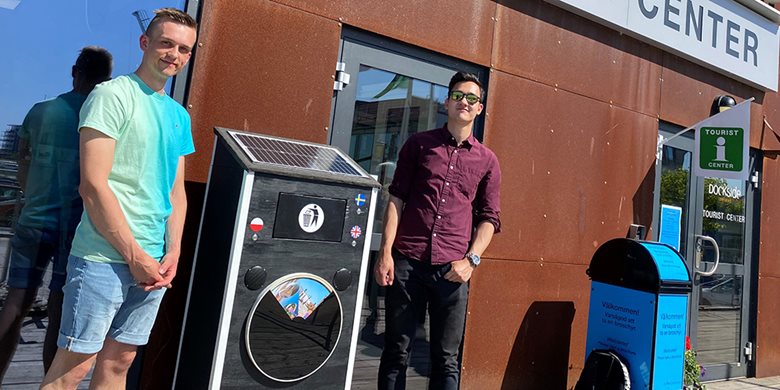
Smarta soptunnor lyfter världsarvet!
Det började som ett studentprojekt i kursen Value Innovation där studenter från maskinteknik fick använda sig av metodiken Design Thinking för att tillsammans med Karlskrona Kommun under 8 veckor skapa lösningar för "hållbar turism". Prototyper togs fram och presenterades (https://www.productdevelopment.se/?p=13272) Prototyppresentation i Value Innovation. Kommunen fann resultaten intresanta och tillsammans…

Value Innovation projects 2022
MT2568 Value Innovation is a Master Programme course that digs deep into the Design Thinking methodology, asking students to work with the development of product and services in collaboration with selected external partners along the entire study period of 8 weeks. In 2022, BTH partnered with the municipality of Karlskrona…
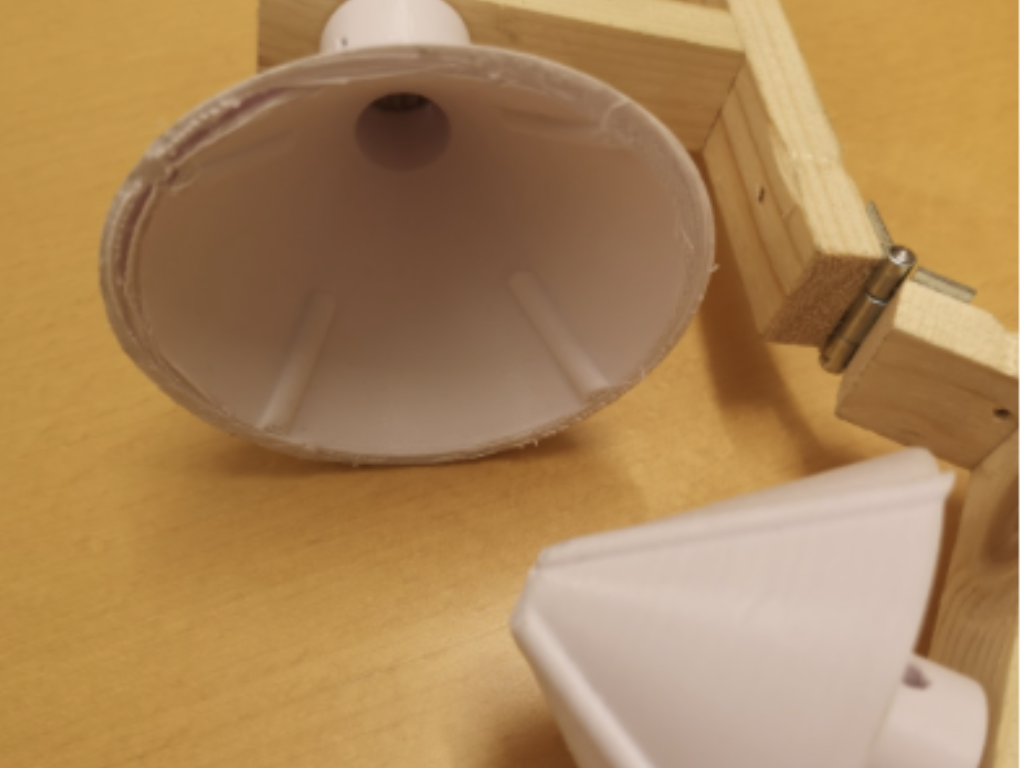
Cone coupling
Technological innovation for the agriculture weed control industry Programme: Mechanical engineering / Industrial economy Course: MT2554 Value Innovation Corporate partner: Lyckegård Challenge: The objective of the project was to analyze the agriculture weed control machine CombCut made by Lyckegård Group AB and find an innovative refinement of the CombCut. Solution:…
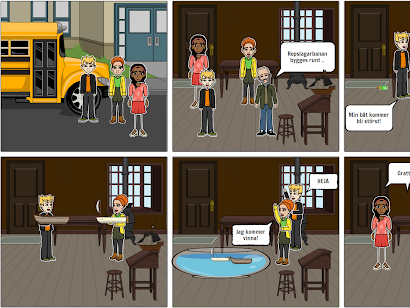
Engaging Millennials
An innovative experience Programme: Mechanical Engineering / Industrial Economy Usman Abid, MSC in Mechanical Engineering, class of 2014 Liban Mohamed Hassan, MSC in Mechanical Engineering, class of 2015 Haris Hodzic, MSC in Mechanical Engineering, class of 2015 Ghadir Mustafa, MSC in Mechanical Engineering, class of 2016 Course: MT2554 Value Innovation…
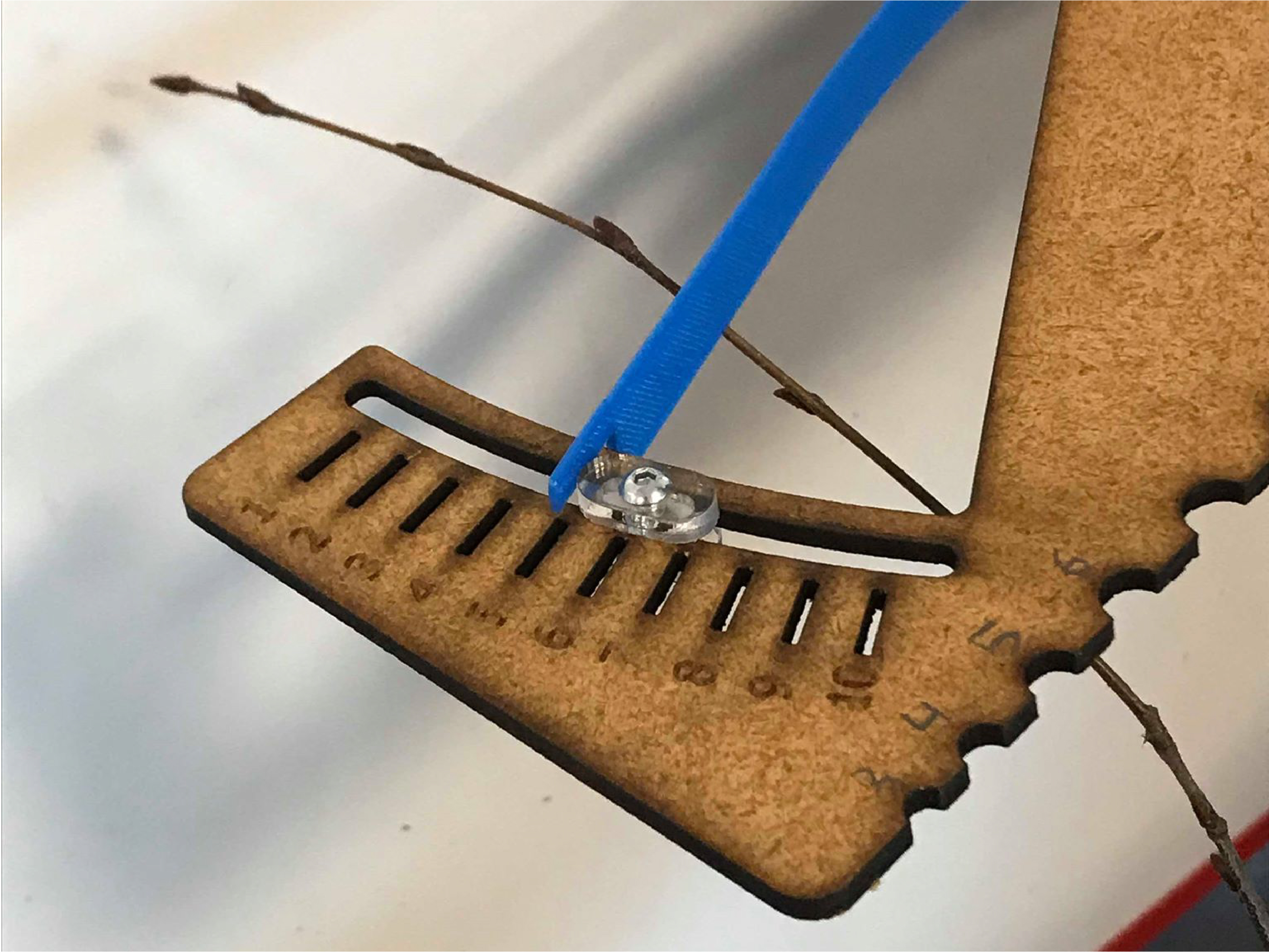
CombCut – Agricultural farming machine
Innovating around the CombCut machine Programme: Mechanical Engineering / Industrial Economy, class of 2014 Course: MT2554 Value Innovation Corporate partner: Lyckegård Challenge: Looking at the current market and analyze how the CombCut is used and perceived by customers to find areas with the possibility for innovations and develop a solution.…
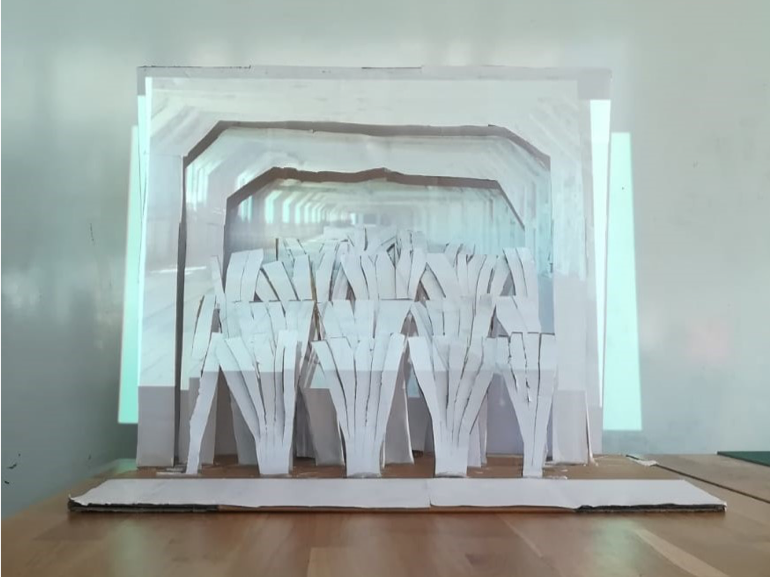
THE “INVISIBLE” WORLD HERITAGE
Make the insvisible visible Your browser does not support the video tag. Your browser does not support the video tag. Programme: Mechanical / Industrial Engineering Course: MT2554 Value Innovation Corporate partner: Karlskrona Kommun Challenge: The purpose of this project is to make some part of the UNESCO World Heritage in…
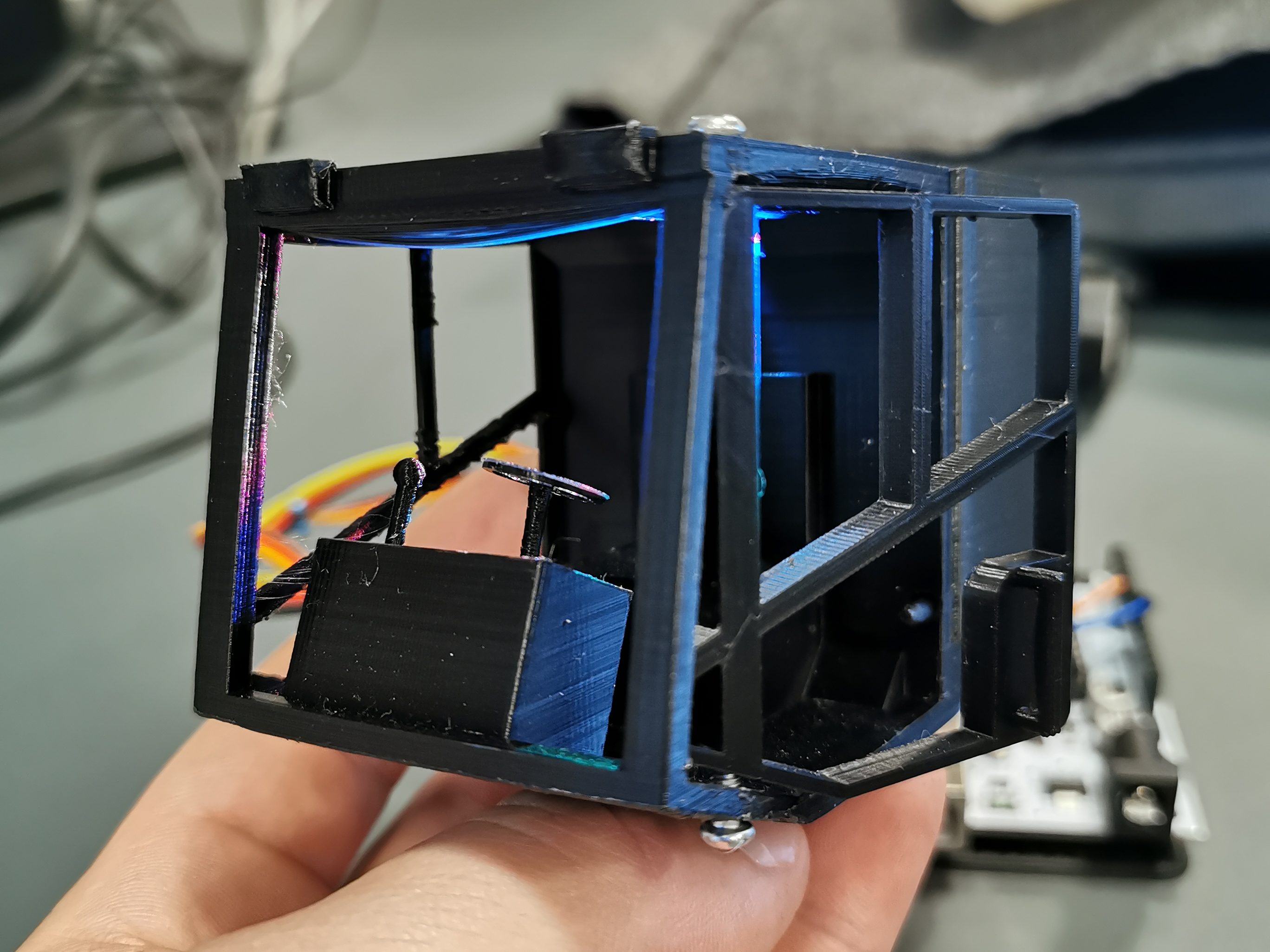
Dynapac team 1
Key less system for rollers Programme: Mechanical Engineering – Innovative and sustainable product development Course: MT2554 Value Innovation Corporate partner: Dynapac Challenge: Key less system for rollers Solution:Bluetooth connection via mobile app Impact: No physical key Prototypes: Arduino, servo, led, 3d-print, mit app inventor 2 Quotes from sponsor/partner: Where would…
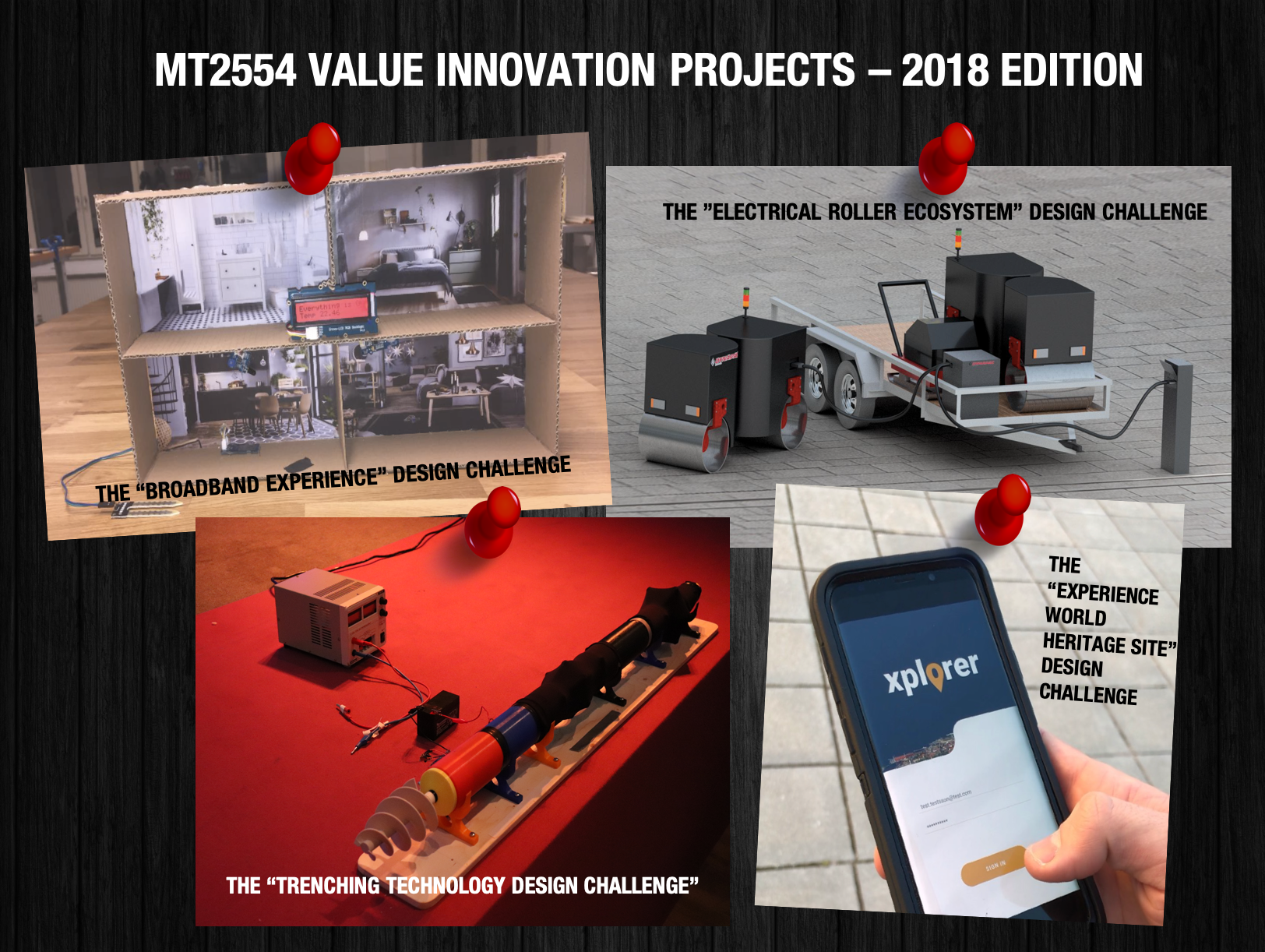
Value Innovation projects 2018
The 2018 edition of the MT2554 Value innovation course featured a total of 8 projects in collaboration with 5 company partners. The course is offered to students in the Master Programme of Mechanical Engineering and Industrial Economy. It builds on the Design Thinking Methodology and gives participants the opportunity to experience…
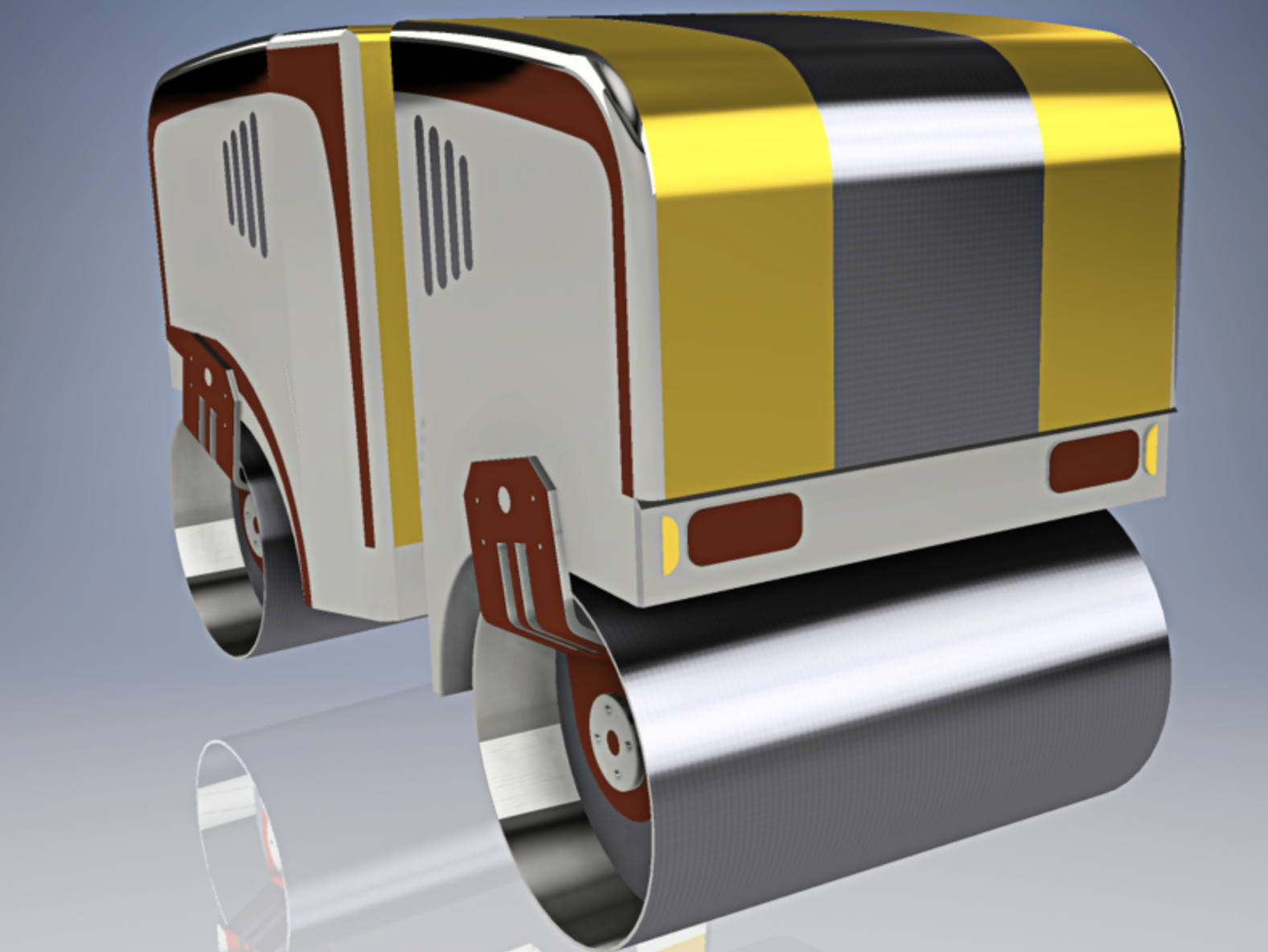
Zero emission Roller of the future
Product development and innovation of a future roller Programme: Mechanical Engineering – Innovative and sustainable product development Course: MT2554 Corporate partner: Dynapac Challenge: Make a roller that has zero emissions, is ergonomic, low sound levels, high visibility and has similar external dimensions as the recent product (CC900). Solution: The solution…
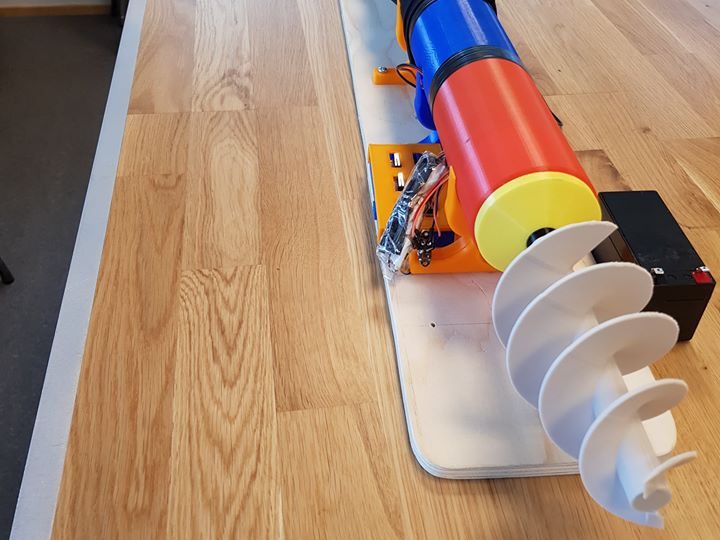
Trenching Machine – The Worm
Revolutionary Trenching Technology Programme: Mechanical Engineering, class of 2015 Course: MT2554 Value Innovation Corporate partner: Affärsverken Challenge: Identify problems within the current digging process and develop a solution that can increase the time efficiency and decrease the cost. Solution: The solution is an autonomous machine that can dig underneath the…

Value Innovation projects 2017
Value Innovation is a course in the Master programme that gives students in Mechanical Engineering and Industrial Economy the opportunity to experience the development of new products and services “in real life”, collaborating with companies and organisations in the Blekinge region. The Value Innovation process builds on the Design Thinking…

Value Innovation projects 2016
How many types of innovation are there? One can argue that innovation is incremental, radical or disruptive, and that many other models are proposed. But when it comes down to ‘real life’ action, how do companies innovate to create value for their customers? MT2536 Value Innovation is a course in…

Value Innovation projects 2015
On Oct. 19th and 20th students in the MT2536 Value Innovation course had the opportunity to present the results of their real-life projects, conducted in collaboration with industrial partners and organizations. All projects have the objective to develop innovative products/services able to create value for their customers and users, while…
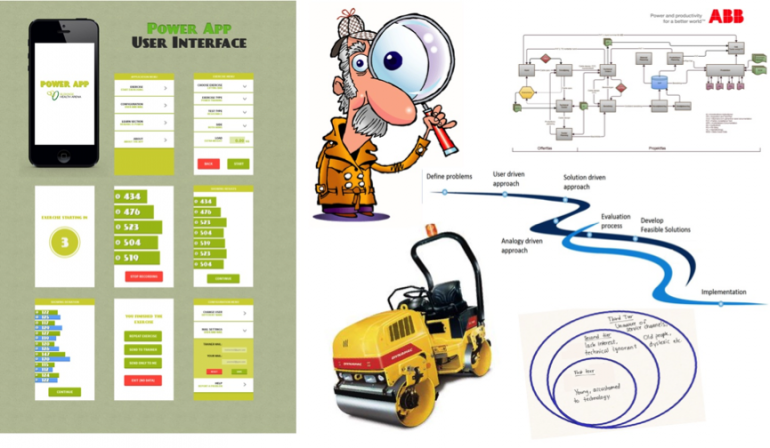
Value Innovation projects 2013
The students in the MT2536 Value Innovation course had on 23/10 the opportunity to present the outcome of the group projects they have been carrying out together with external partners. Value Innovation is a course in the MSPI programme, also taken by Mechanical Engineers (Civilingenjörer) and Industrial Management and Engineering…
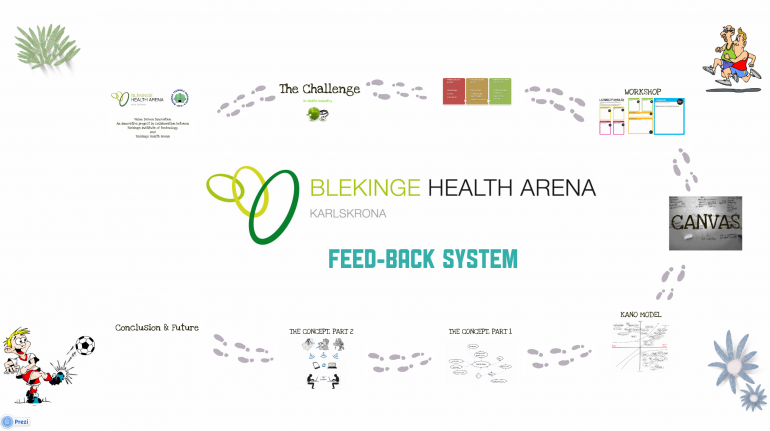
Value Innovation projects 2012
The students in the Value Innovation course had a day of final presentations of their outcome from their value innovation projects that had been carried out together with external partners. Value Innovation is a course in the MSPI programme also taken by Mechanical Engineers (Civilingenjörer) and Industrial Management and Engineering (Civilingenjörer) that targets the development of products…
More articles about Value Innovation can be found here.
Course partners












Contact


